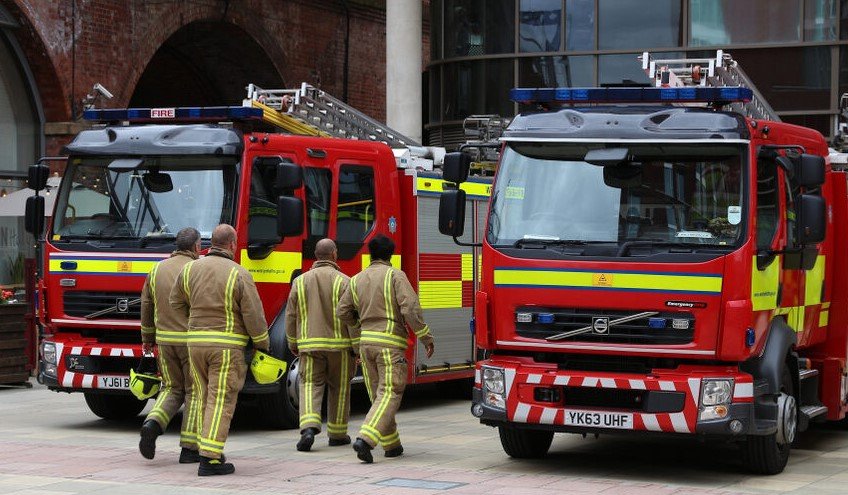Palestinian officials in the West Bank have asked for a donated fire engine to be sent back to Scotland after it got stuck in an Israeli port, racking up high fees. The vehicle, given by Scottish firefighters to help in Nablus, has been held since last year, and returning it could stop costs from growing.
Background on the Donation
Scottish firefighters from the Fire Brigades Union gathered funds and equipment to support their counterparts in the West Bank. They drove the fire engine from Dundee to Southampton before shipping it overseas.
The effort aimed to boost emergency services in Nablus, a city facing ongoing challenges. This act built on a long friendship between Dundee and Nablus, which started in 1980.
Donors included medical supplies and sports gear for local kids. People involved saw it as a way to save lives in a tough area.

The Impoundment at Ashdod Port
The fire engine arrived at Ashdod port in Israel last year but officials stopped it from moving forward. They cited the right-hand drive as a problem, which does not match local rules.
Fees have built up to about 16,000 pounds, putting pressure on Nablus authorities. Without payment, the vehicle stays stuck, and costs keep rising each day.
Palestinian leaders now want the engine returned to avoid more debt. This choice shows the financial strain from the holdup.
Officials in Nablus worry that keeping it there could lead to even higher bills. They hope sending it back will end the issue quickly.
Contents and Value of the Shipment
The donation went beyond just the vehicle. It carried items meant to help firefighters and the community.
Here is a breakdown of key items included:
- Firefighting gear and personal protective equipment
- Breathing devices for safe rescue work
- Medical kits for emergency care
- Football uniforms for a children’s club
These supplies could have made a big difference in handling fires and aiding people in need.
Calls for Action and Protests
Union leaders and politicians have spoken out against the impoundment. They argue it blocks vital aid from reaching those who need it most.
Protests happened outside the Israeli embassy in London last year, with firefighters demanding the release. More than 450 groups and people joined calls to free the engine.
Scottish MP Stephen Gethins called the situation a tragedy that hurts vulnerable people. He pointed out how donors feel let down after their hard work.
Recent events in the West Bank, like settler attacks and fires in areas near Nablus, make the need for firefighting tools even clearer. Reports from this year show rising incidents that strain local resources.
Historical Context and Similar Cases
This is not the first time aid like this has faced blocks. In 2011, two fire engines from Scotland were held at Haifa port before release.
That case drew attention and led to the vehicles reaching their goal after delays. Now, with fees involved, the outcome feels different.
Experts note patterns in how aid to Palestinian areas gets handled. Trade rules and security checks often slow down shipments.
Over the years, twinning projects between cities have helped build ties. Dundee and Nablus have shared resources in the past, strengthening community bonds.
A timeline of key events shows the ongoing struggle:
| Date | Event |
|---|---|
| 2024 | Fire engine donated and shipped from Scotland |
| July 2024 | Arrives at Ashdod port and gets impounded |
| November 2024 | Protests at Israeli embassy in London |
| February 2025 | Reports highlight six months of holdup |
| October 2025 | West Bank requests return to avoid more fees |
This table captures the main steps in the story so far.
Potential Impacts on Communities
The holdup affects firefighters in Nablus who count on better tools to respond to emergencies. Without the engine, they face risks in handling fires and rescues.
Local kids miss out on the sports kits, which could have brought some joy amid hardships. The broader community feels the loss of medical supplies too.
If returned, the engine might find new use elsewhere or inspire more donations. But the costs raise questions about who pays for shipping it back.
Experts say this case highlights bigger issues in aid delivery to conflict zones. It could discourage future efforts if not resolved well.
Looking Ahead
As talks continue, many hope for a fair end that lets aid flow freely. The story reminds people of the human side of international disputes.
Share your thoughts in the comments below or spread the word on social media to raise awareness about this issue.
